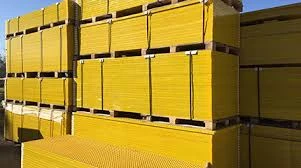
-
 Afrikaans
Afrikaans -
 Albanian
Albanian -
 Amharic
Amharic -
 Arabic
Arabic -
 Armenian
Armenian -
 Azerbaijani
Azerbaijani -
 Basque
Basque -
 Belarusian
Belarusian -
 Bengali
Bengali -
 Bosnian
Bosnian -
 Bulgarian
Bulgarian -
 Catalan
Catalan -
 Cebuano
Cebuano -
 China
China -
 China (Taiwan)
China (Taiwan) -
 Corsican
Corsican -
 Croatian
Croatian -
 Czech
Czech -
 Danish
Danish -
 Dutch
Dutch -
 English
English -
 Esperanto
Esperanto -
 Estonian
Estonian -
 Finnish
Finnish -
 French
French -
 Frisian
Frisian -
 Galician
Galician -
 Georgian
Georgian -
 German
German -
 Greek
Greek -
 Gujarati
Gujarati -
 Haitian Creole
Haitian Creole -
 hausa
hausa -
 hawaiian
hawaiian -
 Hebrew
Hebrew -
 Hindi
Hindi -
 Miao
Miao -
 Hungarian
Hungarian -
 Icelandic
Icelandic -
 igbo
igbo -
 Indonesian
Indonesian -
 irish
irish -
 Italian
Italian -
 Japanese
Japanese -
 Javanese
Javanese -
 Kannada
Kannada -
 kazakh
kazakh -
 Khmer
Khmer -
 Rwandese
Rwandese -
 Korean
Korean -
 Kurdish
Kurdish -
 Kyrgyz
Kyrgyz -
 Lao
Lao -
 Latin
Latin -
 Latvian
Latvian -
 Lithuanian
Lithuanian -
 Luxembourgish
Luxembourgish -
 Macedonian
Macedonian -
 Malgashi
Malgashi -
 Malay
Malay -
 Malayalam
Malayalam -
 Maltese
Maltese -
 Maori
Maori -
 Marathi
Marathi -
 Mongolian
Mongolian -
 Myanmar
Myanmar -
 Nepali
Nepali -
 Norwegian
Norwegian -
 Norwegian
Norwegian -
 Occitan
Occitan -
 Pashto
Pashto -
 Persian
Persian -
 Polish
Polish -
 Portuguese
Portuguese -
 Punjabi
Punjabi -
 Romanian
Romanian -
 Russian
Russian -
 Samoan
Samoan -
 Scottish Gaelic
Scottish Gaelic -
 Serbian
Serbian -
 Sesotho
Sesotho -
 Shona
Shona -
 Sindhi
Sindhi -
 Sinhala
Sinhala -
 Slovak
Slovak -
 Slovenian
Slovenian -
 Somali
Somali -
 Spanish
Spanish -
 Sundanese
Sundanese -
 Swahili
Swahili -
 Swedish
Swedish -
 Tagalog
Tagalog -
 Tajik
Tajik -
 Tamil
Tamil -
 Tatar
Tatar -
 Telugu
Telugu -
 Thai
Thai -
 Turkish
Turkish -
 Turkmen
Turkmen -
 Ukrainian
Ukrainian -
 Urdu
Urdu -
 Uighur
Uighur -
 Uzbek
Uzbek -
 Vietnamese
Vietnamese -
 Welsh
Welsh -
 Bantu
Bantu -
 Yiddish
Yiddish -
 Yoruba
Yoruba -
 Zulu
Zulu
Innovative Solutions for Fiber Water Tank Design and Implementation
Fiber Water Tanks A Sustainable Solution for Water Storage
In recent years, the growing emphasis on sustainability and environmental conservation has sparked interest in alternative materials for water storage. Among these innovations, fiber water tanks have emerged as a revolutionary solution that combines durability, efficiency, and environmental friendliness.
Fiber water tanks, made primarily from advanced composite materials, offer several advantages over traditional water storage options such as concrete or metal tanks. One of the most significant benefits is their lightweight nature. Unlike heavy concrete tanks, fiber tanks are easy to transport and install, making them an ideal choice for remote locations or areas with limited access. This mobility not only reduces transportation costs but also minimizes the environmental impact associated with heavy machinery during installation.
Durability is another hallmark of fiber water tanks. These tanks are resistant to corrosion, rust, and harsh weather conditions, thereby ensuring a longer lifespan compared to their metal counterparts. This longevity translates into lower maintenance costs and less frequent need for replacement, further enhancing their sustainability profile. Additionally, fiber tanks are designed to withstand extreme temperatures, making them suitable for various climates.
fiber water tank

One of the most compelling reasons to choose fiber water tanks is their eco-friendliness. Many fiber tanks are manufactured using recycled materials, reducing waste and conserving resources. Furthermore, their production processes typically consume less energy compared to traditional tank manufacturing methods. The combination of recycled content and energy-efficient manufacturing practices makes fiber tanks a responsible choice for environmentally conscious consumers and businesses.
The versatility of fiber water tanks also cannot be overlooked. They come in various shapes and sizes, accommodating diverse storage requirements, whether for residential, agricultural, or industrial use. Customization options allow for tailoring the tanks to specific needs, ensuring optimal efficiency and functionality. Additionally, fiber tanks can be equipped with advanced features like web-based monitoring systems, enabling users to track their water levels and quality remotely.
In summary, fiber water tanks represent a significant advancement in the realm of water storage solutions. Their lightweight nature, durability, eco-friendliness, and versatility position them as an ideal choice for both individual and commercial water storage needs. As the world continues to seek sustainable alternatives to conventional practices, fiber water tanks are likely to play a crucial role in shaping the future of resource management. Embracing such innovations is essential for building a more sustainable tomorrow, ensuring that water storage meets the demands of both current and future generations.
Latest news
-
Exploring the Benefits of Top Hammer Drifter Rods for Enhanced Drilling PerformanceNewsJun.10,2025
-
High-Precision Fiberglass Winding Machine for GRP/FRP Pipe Production – Reliable & Efficient SolutionsNewsJun.10,2025
-
FRP Pipes & Fittings for Shipbuilding - Corrosion-Resistant & LightweightNewsJun.09,2025
-
Premium FRP Flooring Solutions Durable & Slip-ResistantNewsJun.09,2025
-
Premium Fiberglass Rectangular Tanks Durable & Lightweight SolutionNewsJun.09,2025
-
Tapered Drill String Design Guide Durable Performance & UsesNewsJun.09,2025









